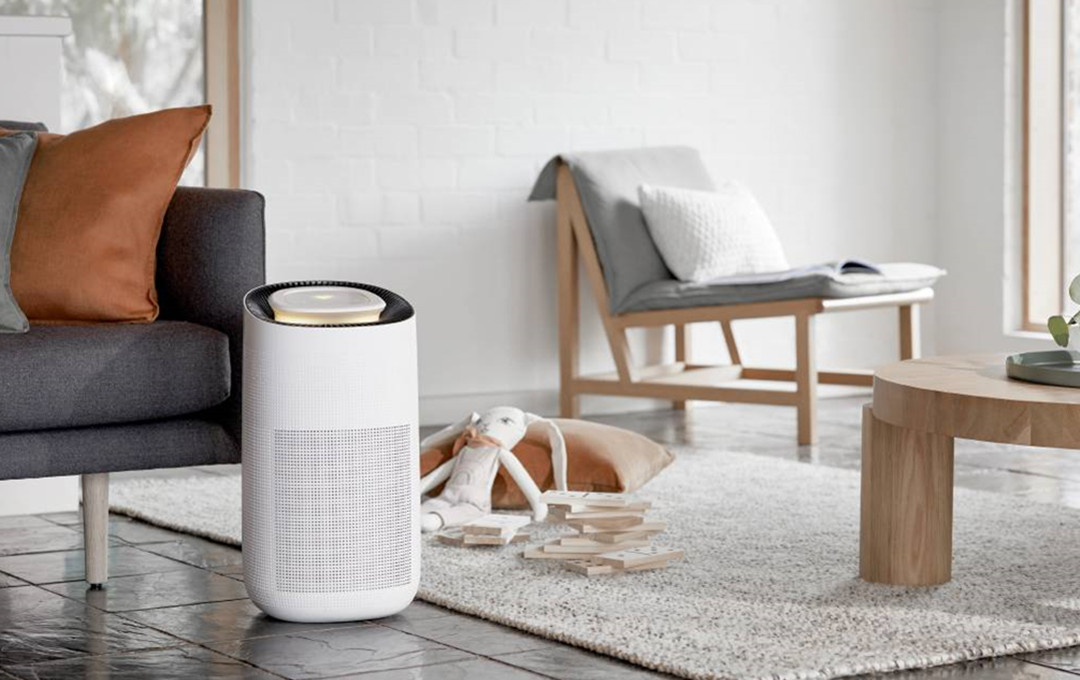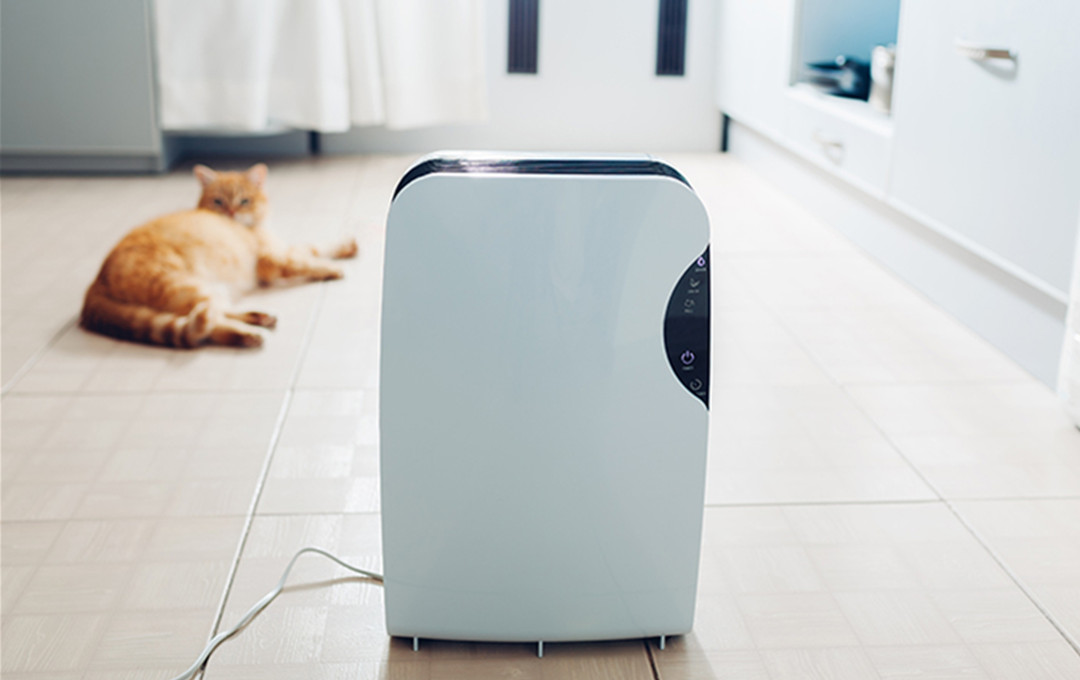The need to reduce indoor pollution finds a possible ally in air purifiers. This growing trend is motivated by various factors: the increase in the levels of indoor and outdoor pollution, the concerns about health problems associated with it and the subsequent desire to rely on safer environments.
Covid-19 has certainly played an important role in this sense: an air purifier with HEPA filter is able to capture potential vectors for viruses, thus stopping the spreading.
The role of air purifiers
An air purifier is a household appliance capable of removing certain substances present in indoor environments through a purification system that normally has a fan and filters. It works like this: the device draws in air, passes it through a filter that removes small airborne particles, and then puts clean air back into the room.
An air purifier can work in conjunction with a high-efficiency particulate air (HEPA) filter whose standard must ensure a minimum efficiency of 99.97%.
 The appliance can also be equipped with an active carbon filter, or be fitted with technologies such as: photoelectrochemical oxidation (PECO), electrostatic precipitation, or ultraviolet germicidal irradiation (UVGI).
Do they really purify the air in your home?
Are air purifiers effective in improving indoor air quality? The answer is: yes, but with reservations. An air purifier is effective on the air and the particles suspended and present in it, but it cannot remove particles already deposited on surfaces, for example furniture and carpets.
Who should buy it
Everyone can consider getting an air purifier, but allergy sufferers can particularly benefit from it because its use helps to improve their symptoms by reducing the concentration of particulate matter and dust mites in the air. It can be of help especially in the period of flowering of the plants and of greater presence of pollen in the air.
The appliance can also be equipped with an active carbon filter, or be fitted with technologies such as: photoelectrochemical oxidation (PECO), electrostatic precipitation, or ultraviolet germicidal irradiation (UVGI).
Do they really purify the air in your home?
Are air purifiers effective in improving indoor air quality? The answer is: yes, but with reservations. An air purifier is effective on the air and the particles suspended and present in it, but it cannot remove particles already deposited on surfaces, for example furniture and carpets.
Who should buy it
Everyone can consider getting an air purifier, but allergy sufferers can particularly benefit from it because its use helps to improve their symptoms by reducing the concentration of particulate matter and dust mites in the air. It can be of help especially in the period of flowering of the plants and of greater presence of pollen in the air.
 The appliance can also be equipped with an active carbon filter, or be fitted with technologies such as: photoelectrochemical oxidation (PECO), electrostatic precipitation, or ultraviolet germicidal irradiation (UVGI).
Do they really purify the air in your home?
Are air purifiers effective in improving indoor air quality? The answer is: yes, but with reservations. An air purifier is effective on the air and the particles suspended and present in it, but it cannot remove particles already deposited on surfaces, for example furniture and carpets.
Who should buy it
Everyone can consider getting an air purifier, but allergy sufferers can particularly benefit from it because its use helps to improve their symptoms by reducing the concentration of particulate matter and dust mites in the air. It can be of help especially in the period of flowering of the plants and of greater presence of pollen in the air.
The appliance can also be equipped with an active carbon filter, or be fitted with technologies such as: photoelectrochemical oxidation (PECO), electrostatic precipitation, or ultraviolet germicidal irradiation (UVGI).
Do they really purify the air in your home?
Are air purifiers effective in improving indoor air quality? The answer is: yes, but with reservations. An air purifier is effective on the air and the particles suspended and present in it, but it cannot remove particles already deposited on surfaces, for example furniture and carpets.
Who should buy it
Everyone can consider getting an air purifier, but allergy sufferers can particularly benefit from it because its use helps to improve their symptoms by reducing the concentration of particulate matter and dust mites in the air. It can be of help especially in the period of flowering of the plants and of greater presence of pollen in the air. Hi~Living Deals from "Zimmermann"

